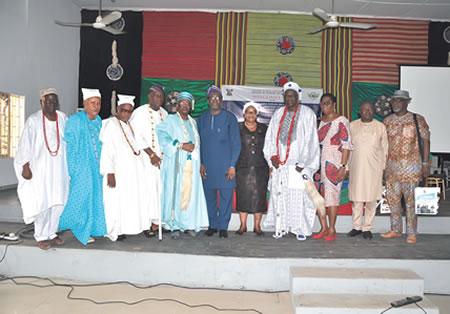THE Lagos State government and key stakeholders have committed to the preservation of historical/ cultural heritage sites and monuments in the state.
They made the commitment on January 22 at a forum held at the Lagos State Council for Arts and Culture, Obafemi Awolowo Way, Ikeja and attended by owners and managers of heritage sites, traditional rulers and other players in the sector.
Explaining the reason for the meeting, the state Commissioner for Tourism, Arts and Culture, Steve Ayorinde said it was to create an avenue for government and the stakeholders to examine issues of preserving, protecting, restoring and promoting historical and cultural sites and monuments in the state.
He added that it was in line with the determination of Governor Akinwumi Ambode, who in his inaugural speech in 2015 promised to “engage investors and stakeholders in creating the enabling environment for tourism, entertainment and art and an iconic infrastructure for the benefit of all Lagosians”.
Ayorinde disclosed that Tuesday’s event was a follow up to the first held in October 2017 and that the objectives remained to ensure the proper maintenance of heritage sites in the state and to keep the monuments for incoming generations.
Associate Professor in the Department of Architecture, University of Lagos, Dr Tunji Adejumo and Architect Theo Lawson, who redeveloped the Old Colonial Prison at Lagos Island into the Freedom Park, also made a case for the preservation of heritage in their presentations.
They noted that all indigenous groups in Lagos had festival routes and urged the people of each area to package whatever heritage sites they have for tourism purposes.
The duo also reiterated the need for an inventory of all cultural heritage resources in the state and called for a consensus on immovable heritage to be addressed. The two presenters further called for the creation of an enabling environment for privately funded small-scale museums to display the state’s heritage.
Other suggestions at the end of the forum include the establishment of IBILE Festival, the establishment of a cultural heritage committee and more funding of the Ministry of Tourism, Arts and Culture.






